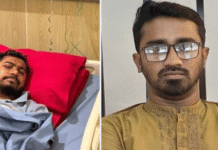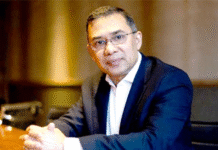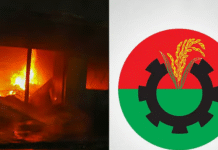It will take about one year to put pressure on the government to hold a mid-term election
The BNP is planning to adopt a “go slow” policy in waging movements in the coming months, with an aim to enforce a mid-term election in about a year’s time, with the apparent realisation that nothing fruitful could be achieved by being tough in the short term.
Insiders said the BNP-led 18-party alliance would not wage any tough programme like hartals and blockades in the next few months as continuous hartals and blockades and the subsequent losses of lives and properties had ended up tarnishing its image.
Party leaders said although the “farcical” election could not be resisted, one of their main aims to prove the election “controversial” had been reached much to their content.
In a press conference on Wednesday, BNP Chairperson Khaleda Zia also said they had achieved the “primary victory” by succeeding in to keep people away from the polling centres during the January 5 elections.
The international community has been repeatedly urging the political parties to shun the path of violence and start a dialogue as soon as possible, while also expressing disappointment over the poor turnout in the election.
On January 13, diplomats asked the BNP to avoid calling hartals and blockades. Their expectations were apparently reflected in BNP Chairperson Khaleda Zia’s press conference, from which announcements of mainly peaceful programmes like demonstrations and public gatherings were made instead of hartals and blockades.
Diplomats also told the BNP that although the party was terming the government illegal, there was no room to ignore either the election or the government.
“We are moving forward very cautiously. We are announcing programmes to gradually get the common people involved in our movement. We are sure that we will get results,” Abdullah Al Noman, vice-chairman of the party, told the Dhaka Tribune yesterday.
He also said the general election was farcical because there was no participation of the people. “Whatever the situation may be, we will have to talk to the government for resolving the crisis.”
In a meeting of the 18-party alliance last week, partners reportedly advised Khaleda Zia to enforce a hartal on January 29 – the day the 10th parliament sits in its first session.
Khaleda, however, did not listen to their suggestions and announced a “black flag procession” instead.
In her Wednesday’s presser, leaving the usual strategy of enforcing hartals and blockades to put pressure on the government, Khaleda hinted that they would go slow and for “soft programmes” like demonstrations and rallies at the district level. “I and our leaders will gradually visit all the districts,” she said.
In last week’s meeting, leaders of the 18-party alliance discussed the loopholes in the movement that they had been waging. A decision was reportedly made to keep a close watch on the situation and the government’s attitude towards them over the next six months.
“If the government bars us from observing peaceful prgorammes, then we will be compelled to announce hartals and blockades. Otherwise, we will go for mass contact-based programmes in the days ahead,” seeking anonymity, a standing committee member of the BNP told the Dhaka Tribune.
Although many leaders and activists are still detained in the various jails around the country, a number of BNP leaders including Abdul Awal Mintoo and Selima Rahman secured bail yesterday.
Following a High Court directive that instructed law enforcers to not harass or arrest him until police filed reports in the cases against him, BNP’s acting secretary general Mirza Fakhrul Islam Alamgir also came out in public yesterday after remaining in hideout for months.
For the first time in 47 days, BNP leaders and activists were allowed to enter the party’s Nayapaltan office yesterday without any bar from law enforcers.
Since taking oath as members of the new cabinet earlier this month, Prime Minister Sheikh Hasina and the other ministers have been saying that a dialogue for progress is possible only if the BNP severed its ties with Jamaat-e-Islami.
Source: Dhaka Tribune









